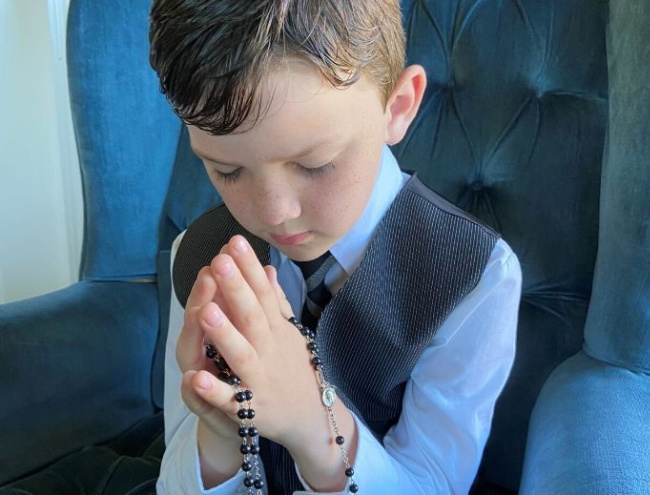I. The beginnings of the infused habits of the moral and theological virtues are not from our own strivings but from God. They come to us with the infusion of sanctifying grace. This grace is bestowed on us by God through the Sacraments; or, in default of the Sacraments, it is given to us by God's free bounty in response to our turning towards Him with acts of charity and repentance of our sins. We then receive the faculty of eliciting actions of every kind on the supernatural level. Our souls are enriched with new endowments, viz. the powers and facilities for all the virtues; and this makes them beautiful in the sight of God as presenting more fully the image of His perfections. The acquired habits of virtue are established in our souls as we gain the knowledge of them, become familiarized with them, learn to esteem and desire them, and finally put them into frequent practice. The infused and acquired habits must be united. We must not be contented with the mere potentiality of exercising faith or justice on the supernatural plane; we must bring that potentiality into effect as occasion offers, and repeat the actions of faith or justice, exercising our natural faculties until they are moulded to the forms of virtue as by a second nature. The infused habit, or supernatural potentiality, must take shape in the acquired habit of action, to bring forth fruit and prove its vitality. Without that infusion from God, the habit of action, of belief or of justice, e.g., is only of the natural order and is dead as regards the higher life.
II. The habits of virtues, both the infused and the acquired, are capable of being developed in us; and it is an important part of our duty on earth to advance from virtue to virtue until we see the God of Gods in Sion. The progress in each kind of habit corresponds to the process by which it was originated. The infused habits of virtue are bestowed by God in union with sanctifying grace, and they vary with it. Every prayer or other act of virtue beautifies the soul with a new accession of sanctifying grace; and in equal measure that principle acts in greater intensity within us which gives the supernatural quality to our good deeds, and originates Faith, Hope, Charity and the gifts of the Holy Ghost. The habit of action, or the acquired facility of deeds of virtue, is increased by the continual repetition of those acts, until we arrive at the practice of the most difficult virtues, and until those things which to the natural man are impossible become the common-places of our lives. The habit of action is our daily currency, the infused supernatural habit is our capital; the constant overturn of habitual acts increases the permanent habit which stands behind them and gives them their supernatural value. Pray God that you may always advance on this double line.
III. If we do not advance we fall back. Our habits of virtue are under a liability to diminution and entire destruction. The infused habits of virtue are radically destroyed by the loss of sanctifying grace through the commission of one mortal sin. The acquired habit of action does not however perish. Our belief, for instance, in divine mysteries may be as firmly rooted in us as before the act of sin, but it is no longer living supernatural faith, it is simply the momentum which still survives in our natural faculties from the accumulated acts of faith that went before. In course of time however the absence of sanctifying grace and the infused supernatural habit tells upon the acquired habits of action. Graces of action are diminished, and good actions themselves first lose their supernatural quality, and then perhaps the natural facility for their repetition; they first become spiritually dead, and then die out as actions, from disuse and from repeated falls into the sins that are opposed to them. Beware of any weakening of either class of habits; and do not trust to the sufficiency of one alone if the other be deficient.


